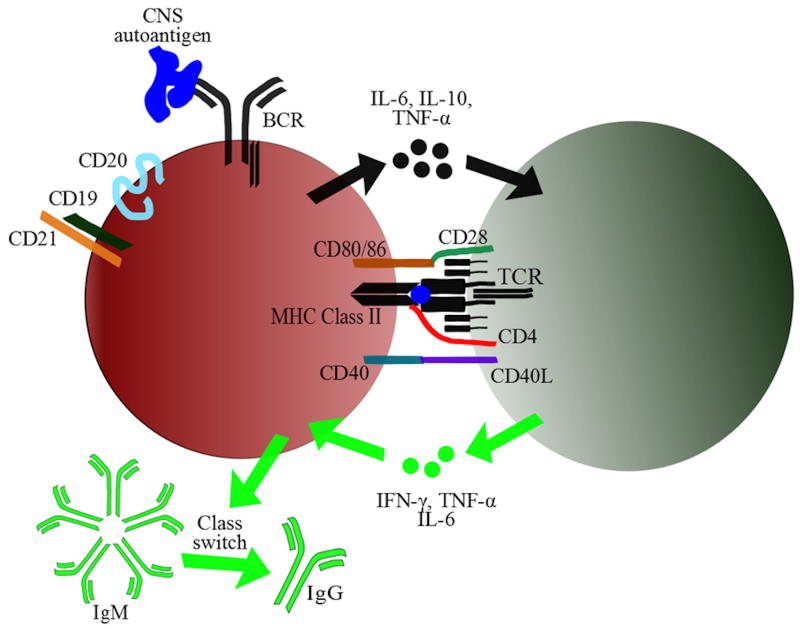Figure 1. The triple role of B lymphocytes – Antigen presentation, cytokine expression, and antibody secretion.
B lymphocytes are capable of presenting antigen to T cells. They recognize pathogens via the B cell receptor (BCR), and then endocytose the antibody-fixed antigen. Like dendritic cells, B cells constitutively express MHC class II molecules. Upon antigen engagement via the BCR, B cells initiate the expression of various cytokines, including interleukin (IL)-6, IL-10, and tumor necrosis factor alpha (TNFα). These cytokines affect CD4+ T cell activation and differentiation. CD4+ T cells, once activated and differentiated into a specific T helper (Th) cell phenotype, cross-activate B cells via cytokines and co-stimulatory molecules, including cluster of differentiation (CD)40-CD40 ligand and CD80/CD86-CD28. In addition, the class switch from immunoglobulin (Ig) M to IgG requires CD4+ T cell help via cytokines and co-stimulation.

